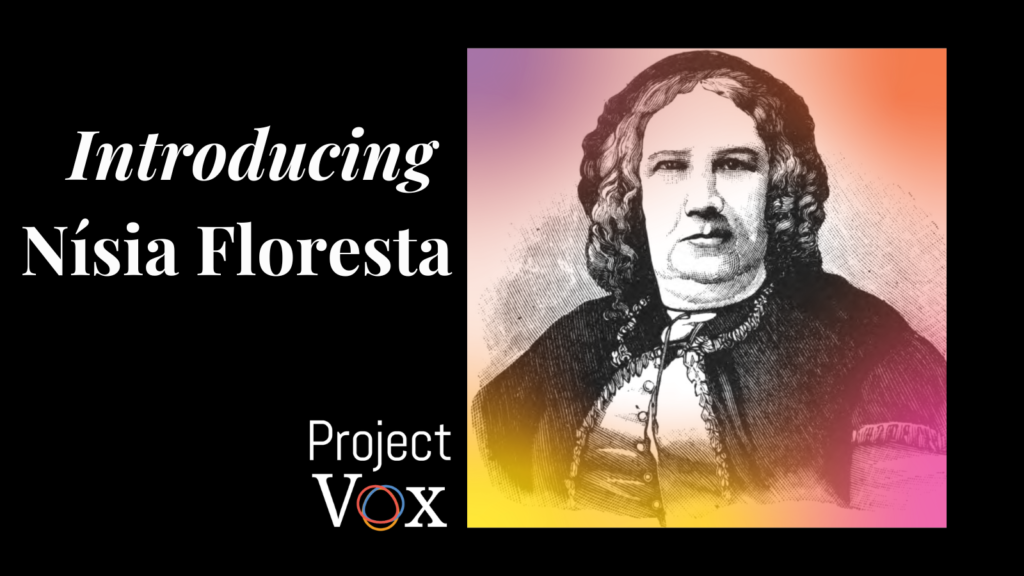“The more ignorant a people are, the easier it is for an absolute government to exercise its unlimited power over them. It is based on this principle, so contrary to the progressive march of civilization, that most men oppose women’s access to the means of cultivating their spirits. However, this is a mistake that has been and always will be fatal to the prosperity of nations, as well as to the domestic happiness of man.” (Opúsculo humanitário, 51)
Nísia Floresta Brasileira Augusta is the pseudonym of Dionísia Gonçalves Pinto. Floresta was a pioneer in Brazilian feminism, having been the major force behind a foundational text on women’s rights in Latin America: Direitos das mulheres e injustiça dos homens (The rights of women and the injustice of men). Floresta was also a public intellectual who achieved international recognition during her lifetime. Her work extends well beyond this translation (made in 1832 when she was only 22 years of age) and includes poetry, travel writings, and philosophical essays on morality and education. Most of these works have autobiographical content and are concerned with female virtues and moral upbringing. While the majority of Floresta’s works are in Portuguese, she also wrote in French and Italian, and some of her works were translated to English, Italian, and French during her lifetime, ensuring that her ideas circulated well beyond Brazil.
Newspapers and the Brazilian press were receptive to her writings, and she was known for her activity as a school director (though the post-colonial Brazilian elite did not approve of this work). In 1849 Floresta published the poem A lágrima de um Caeté (The tear of a Caeté), depicting the social conditions of the indigenous group Caeté and the Praieira Revolt. The chapters of her central work, the Opúsculo humanitário (Humanitarian booklet) were disseminated widely in Rio newspapers, and published together as a book in 1853. This work was ahead of its time in many respects, in that it protested the treatment of women, enslaved persons, and indigenous peoples under the colonial regime of 19th century Brazil.


